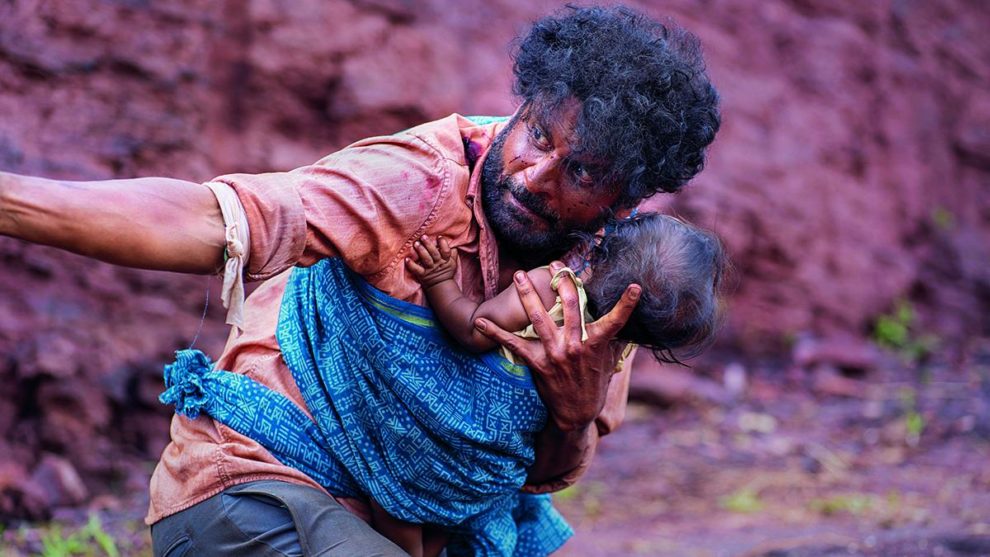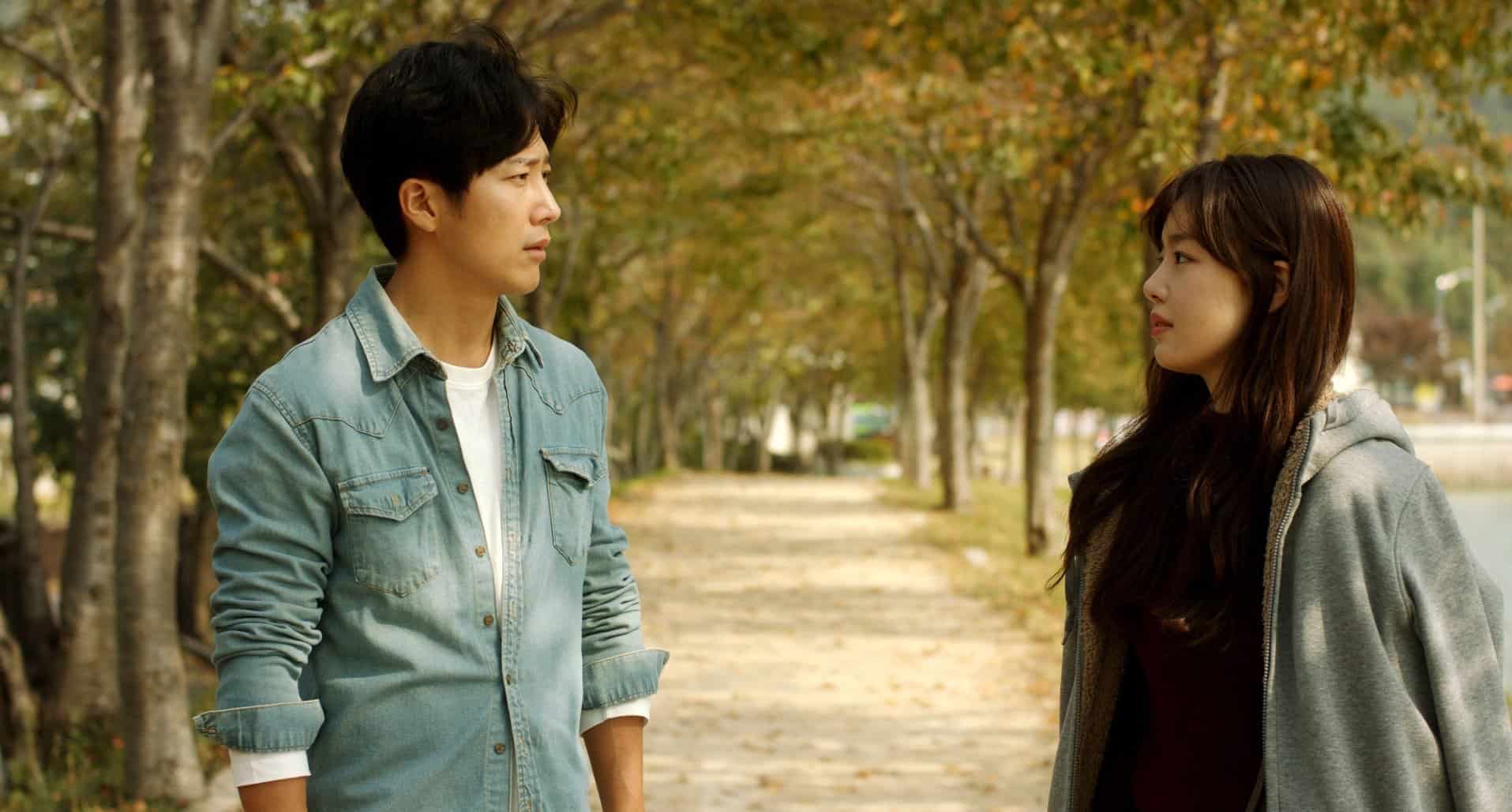Following “Ajji” and “Bhonsle”, Devashish Makhija's latest film, “Joram” also finds its way to Rotterdam, proving once more, that the Indian director is rather proficient in using genre in order to make psychological and sociopolitical comments. This time, quite interestingly, he comes up with a survival thriller that will remind many of “Lone Wolf and Cub”.
Joram is screening at International Film Festival Rotterdam

The film starts in an idyllic setting in Jharkhand, Eastern India where a man is pushing a woman on a swing under a tree. Next scene, and we are in Mumbai where the same couple, Dasru and Vaano, are doing backbreaking jobs in construction, while living in a decrepit room inside the building they are working on, with their infant baby. Vaano still seems happy, but there is an intense shadow hanging over Dasru's eyes, which becomes even more intense when a political leader from their region, Phulo Karma and her assistant, visit the site and start asking questions about his whereabouts, eventually even ending up in the couple's room.
Soon after that tragedy takes place, and Dasru finds himself being hunted as a murderer and trying to survive with the baby in hand, inside the streets of Mumbai, while Ratnakar, an overworked police officer whose higher up is not letting even sleep before he catches the culprit, on his heel. Phulo Karma's role and the corruption of the police soon become parts of the narrative, while Dasru eventually reaches his birthplace, with a number of people chasing him.
Once more, as in the case of his two aforementioned films, Makhija comes up with a film that thrives on its atmosphere. In that fashion, the movie begins with a sense of mystery and disorientation about what is happening, why Dasru and Vaano are in Mumbai, what is the role of Phulo Karma, and why Ratnakar's higher ups are so insistent in catching the suspect. This sense actually carries for the majority of the duration, with the director revealing small details, mostly through flashbacks, thus retaining interest throughout the film. Granted, the full revelation could have been handled a bit better, but this is but a minor fault, and in no way does it harm the overall prowess in that regard in the movie.
Makhija has been known to use violence in a meaningful way, in order to make his comments more direct and impactful, and “Joram” is no exception, although in this case, this aspect is restricted to some scenes here and there, which do remain, though, among the most memorable in the whole film. This time, however, agony is the main ingredient, with the almost constant chase Dasru undergoes being its main source, along with the fate of the protagonists. Furthemore, and as soon as the setting changes to Jharkhand, the directorial approach occasionally becomes documentary-like, with the circumstances of the tribal people being highlighted quite realistically, while commenting on corruption, land grab, racism, deforestation and displacement of tribals, and the subsequent grief and revenge, in the rather rich context here.
Also of note is the character of Ratnakar, with the story essentially being portrayed through his eyes for the most part, and his disillusionment regarding the truth of how the police and the government in general works, as much as the differences between the urban and the rural areas, being one of the main narrative elements here. In that fashion, Zeeshan Ayyub's performance in the role is a key here, and thankfully, his performance is excellent throughout, with the way he transforms as he realizes what is happening being among the best traits of the movie. Smita Tambe as Phulo Karma is also excellent, emitting a sense of danger every time she appears on screen, while Manoj Bajpayee proves his greatness once more, in a rather impactful performance, despite its laconic nature. The way his character shows how innocent people end up between the hammer and the anvil of the various powers that dominate the country is another of the movie's greatest traits.
Piyush Puty's cinematography is also on a very high level, with the depiction of both the urban and the rural areas being quite artful, while the night and the violent scenes are frequently a wonder to look at. Abhro Banerjee's editing results in a fast pace that suits the thriller aesthetics nicely, while the flashbacks are well placed within the narrative.
“Joram” is an excellent movie that works both as a gritty thriller and as a sociopolitical drama, and another testament to Makhija's prowess as a filmmaker.
















